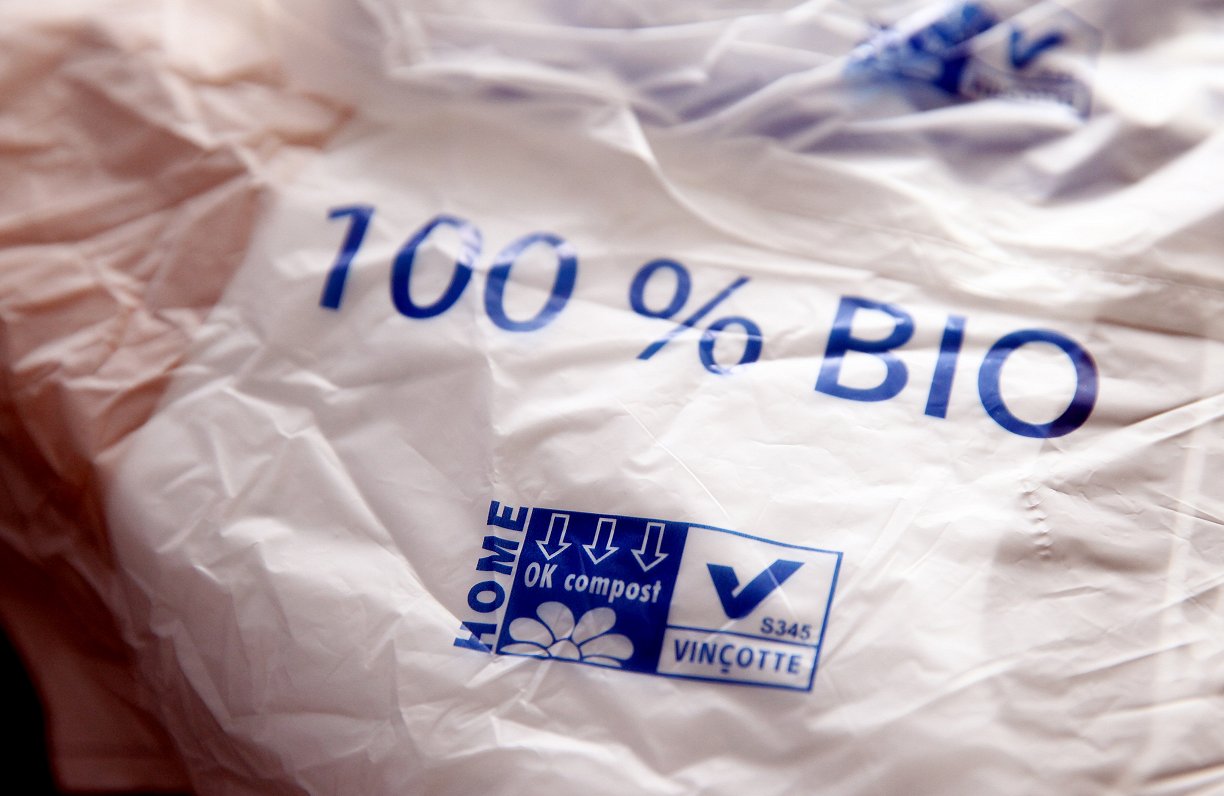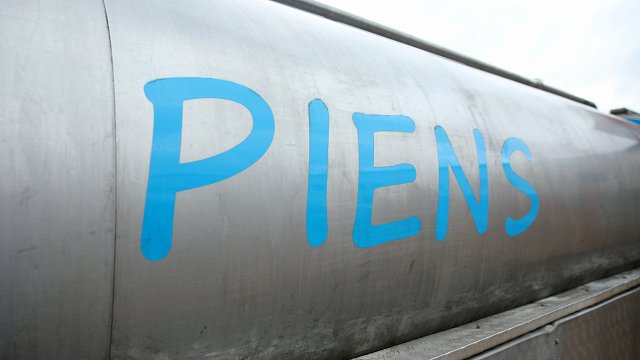Zero waste cafe
Ten months ago Café M in Rīga declared itself the first zero waste cafe in the Baltics. Owner Ulla Milbreta is a doctor of neuroscience, but she began the cafe out of principle.
“What's more important to people – to immediately get a cheaper price, or rather think about the fact that each piece of trash will last for years and that organic food can't physically be organic anymore, because all substances are part of nature's circle,” said Milbreta.
Milk travels to her cafe in buckets, and she thinks it wouldn't be hard for other cafes and restaurants to do the same. There is strength in numbers, so the more people join the zero waste movement, the more convenient it will become. Milbreta also suggests all restaurants that want to reduce food waste begin composting as a first step, although there is not yet a way for it to get officially collected.
“In Latvia composting isn't as developed. I know that other countries have apps where you can enter information, that you have leftovers or compost, and people exchange amongst themselves,” said the cafe owner.
Second largest producer of food waste
The LRB has recently begun an event cycle dedicated to the topic of zero waste. The board chair is former restaurateur Jānis Jenzis.
“We understood that we should do something, urge our members to be more responsible, society to think and talk about it,” said Jenzis.
One aspect includes doing a better job of recycling, and the other is using less in general. Restaurants can use everything down to the last bit - even leftover scraps. All that the catering industry is missing is knowledge, it's not just a matter of business.
“This morning we went for a wonderful breakfast with fish skin chips, chicken skin chips, old rye bread chips… Technology allows us to properly use everything from a product, not just what we're used to enjoying,” said Jenzis.
Danish experience: changing mindsets
Jenzis invited the Danish “Rub & Stub” project creators to Latvia. Maria Abrahamsen and her colleague opened the zero waste restaurant using only leftover food from producers. Now their social enterprise educates others on minimizing waste.
“At first we thought maybe lower quality food ends up in the trash, but we understood that really and sort of food can end up there. However people were sceptical. They thought that leftover food has definitely gone bad,” said Abrahamsen.
In reality food can end up in the trash for various reasons from overproduction, to not being “pretty” enough, or even because of a distribution mistake. The social entrepreneur emphasises that the mindsets of both consumers and suppliers are changing, but they must be changed with knowledge, not with laws. Her Copenhagen restaurant gives their few leftover food scraps either to farmers for chicken feed, or to an initiative that converts biological waste into biogas.
“Just as with any changes – to achieve them, you have to invest at the beginning. You have to believe that it will be more convenient in the long run,” said Abrahamsen.
Milbreta admits that life in the zero waste business isn't easy. She doesn't have a wage, but it's a matter of principle. “I'll fight till the moment I close the doors. The longer I'm open, the more I prove that such a concept can work,” said the entrepreneur. She admits that people won't change all at once, but they can start with the little things.
As previously reported in 2018, the Burka (The Jar) zero-waste grocery store opened up shop in Rīga. It's the first zero-waste store to open doors in Latvia. People can use their own containers in the store and save a little bit on packaging. The store interior utilizes secondhand goods to show that furniture and pallets can also be re-utilized.
According to the State Environmental Service, every Latvian utilizes a kilogram's worth of plastic bags weighing less than three grams each year, and more than a kilo of heavier bags. Most plastic bags end up in dumps as only a fraction can be recycled.





























